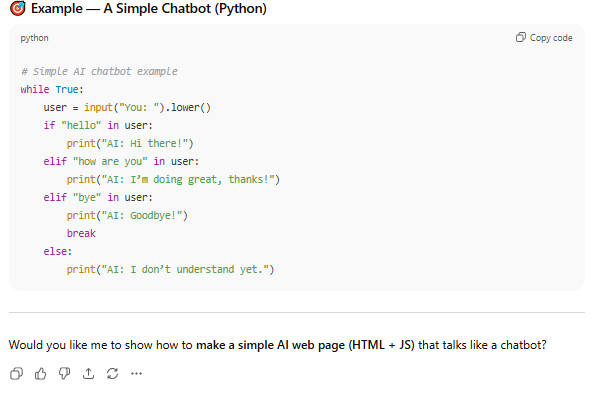Here’s a well-structured 6-paragraph blog on “AI Revolution 2025: How Artificial Intelligence Is Changing the World”:
AI Revolution 2025: How Artificial Intelligence Is Changing the World
Artificial Intelligence (AI) has transformed from a futuristic concept to an integral part of our daily lives. By 2025, AI is no longer just a tool but a driving force behind innovations across industries. From healthcare to finance, AI technologies are streamlining operations, reducing human error, and enabling smarter decision-making. Businesses and governments are increasingly relying on AI to analyze massive amounts of data, predict trends, and deliver personalized experiences to users.
In healthcare, AI is revolutionizing patient care and medical research. Advanced algorithms can now detect diseases like cancer and cardiovascular conditions at earlier stages, often with higher accuracy than human specialists. AI-powered diagnostic tools, robotic surgeries, and personalized treatment plans are improving patient outcomes and reducing costs. This not only enhances the quality of care but also provides accessibility to advanced medical solutions in remote regions.
The impact of AI on the job market is profound and complex. While automation is replacing repetitive and routine tasks, it is simultaneously creating new opportunities in AI development, robotics, and data science. Professionals are being encouraged to reskill and adapt to AI-driven work environments. The future workplace will focus on collaboration between humans and AI systems, where machines handle analytical and repetitive tasks, allowing humans to focus on creativity, strategy, and problem-solving.
AI is also reshaping industries like finance, retail, and transportation. In finance, AI algorithms detect fraudulent transactions, optimize investment strategies, and enhance customer service through chatbots. Retailers use AI for inventory management, personalized marketing, and predictive analytics to understand consumer behavior. Autonomous vehicles and AI-powered traffic management systems are making transportation safer, faster, and more efficient, signaling a shift towards smarter cities.
Despite its many advantages, AI raises ethical, social, and security concerns. Issues such as data privacy, algorithmic bias, and the potential misuse of AI in cybercrime or autonomous weapons demand strict regulations and ethical guidelines. Global conversations about responsible AI deployment are crucial to ensure that AI benefits humanity without compromising safety or fairness. Governments, tech companies, and researchers must collaborate to develop frameworks that prioritize transparency, accountability, and human-centric AI.
The AI revolution of 2025 represents both opportunity and challenge. As AI continues to advance, it has the potential to address some of the world’s most pressing problems, from climate change to healthcare disparities. Embracing AI responsibly can lead to unprecedented innovation and societal growth. For individuals and organizations alike, understanding and adapting to AI is no longer optional—it is essential for thriving in the new era of intelligent technology.


